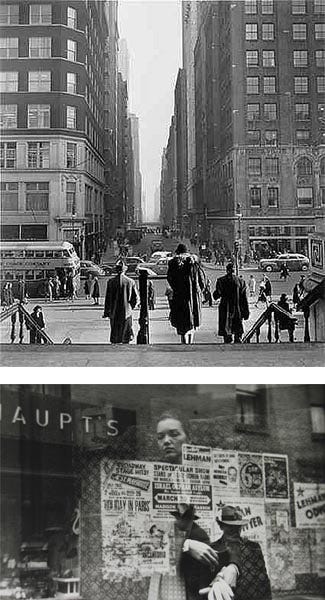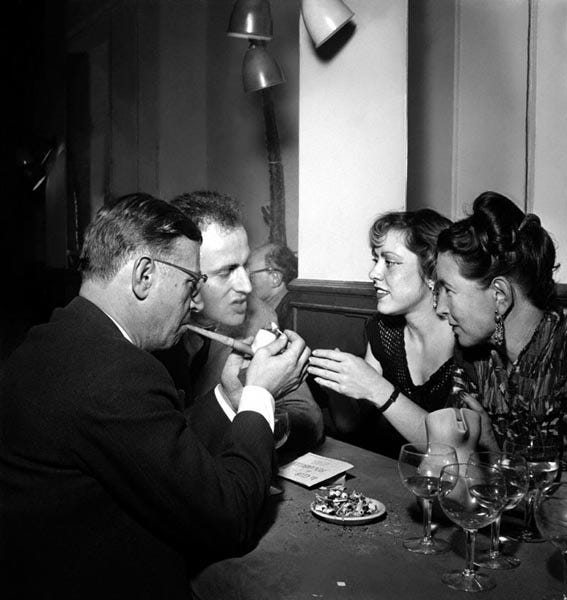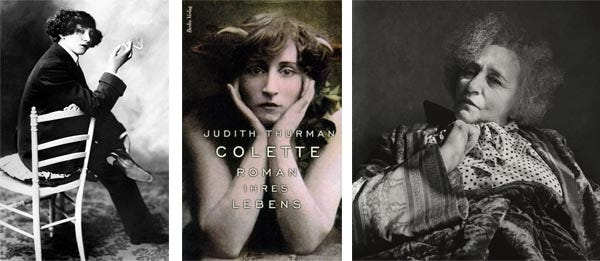The Case for Being Daring
Three French writers tell me what we Americans are like, and why I want to be a little more like the French
As long as I can remember I’ve looked for foreign perspectives on what we Americans are like, because I wonder what I’m like. For instance, if I were to visit France I’d ask Parisians what they think about Americans (about me).
The hard part is that whatever I find out I am as an American, I’m stuck with it.
You can read one well-known description of us in Alexis de Tocqueville’s 1835 report, Of Democracy in America.

He wrote,
As one digs deeper into the national character of the Americans, one sees that they have sought the value of everything in this world only in the answer to this one single question: how much money will it bring in?
“But, Alex”, I want to tell him, “I am an American who is not like that. One of my favorite yard signs is near the entrance of our county’s popular DuPont State Forest, and it says, ‘Nothing is for sale here’.”

However, I should take heed, because if de Tocqueville is correct about a national obsession with money, then neither I nor the person who lives in that house will go far here in America.
He also says,
I know of no country in which there is so little independence of mind or real freedom of discussion than in America.
On this, he might be right. If you look at today’s United States Congress, you’ll see lots of freedom of speech, but not much freedom of discussion. I wish we had more.
And among the citizens, our 1990’s political correctness has lately turned into the near silencing of discussion. I confess I’ve experienced it myself as self-censorship, even among friends.
In contrast, I think of the crowded coffee shops in Paris during Simone de Beauvoir’s time, where people passionately talked about art and politics far into the night.
When Beauvoir toured the United States in 1947, she kept a diary that was published as America Day by Day. A reviewer of this book has said,
The good will and helpfulness of the American people attracted yet irritated Simone de Beauvoir. They identified virtue with prosperity and they loved to impose upon others all that they thought was good.
What distressed her most was the average American’s inclination to seek value ‘in things, not in themselves.’
This makes me worry that I myself might be a materialistic American, and have lacked the perspective to see it. On the other hand, Beauvoir may have been too harsh. I don’t know what to think.

A third French writer, Colette, must have thought American women were inhibited. Judith Thurman, in her introduction to Secrets of the Flesh: a Life of Colette, writes,
Since the Puritan revolution, Anglo-Saxon [American] daughters have been taught that their greatest leverage — the way to influence art, politics, or anything in the public sphere — resides in abstention.
In contrast, in spite of misogynistic laws and traditions, French culture prizes and respects daring in women.
From Colette’s viewpoint, I can see now that I, as an American girl in upstate New York, tried not to be attention-getting or daring. I never sat in a chair the way she did, below.
But it’s not too late to be daring!
I don’t think any of the three writers in this post would gasp if I went this afternoon to my Democratic Party Headquarters and signed up to knock doors in my neighborhood. I know some candidates who would bring public discussion back to America, and I really want to get them some attention.






You are spot on, Deda! Oui OUI.
"Money is not the root of all evil, but the love of money is."
We Americans have unfortunately proved that phrase to be true!